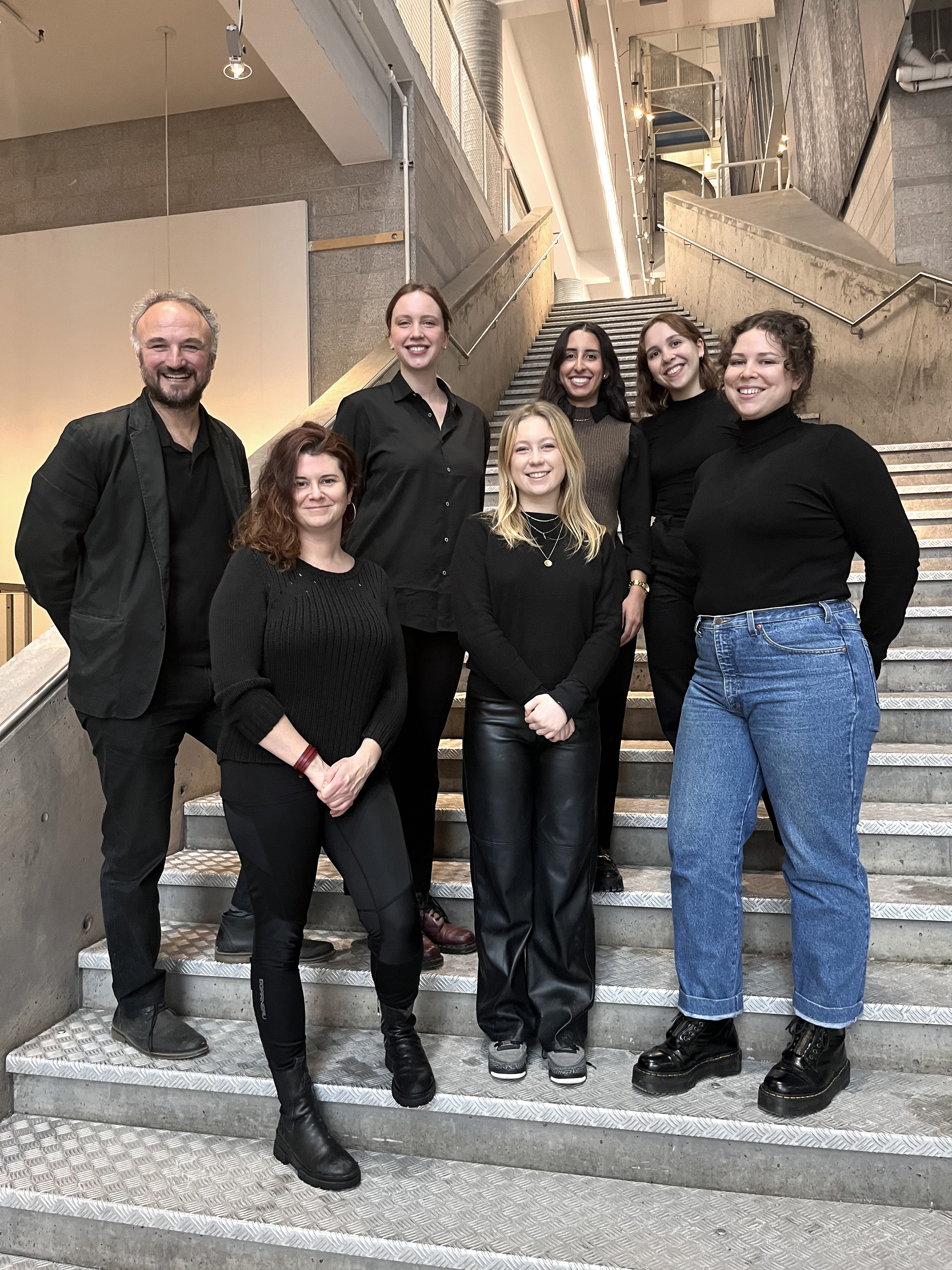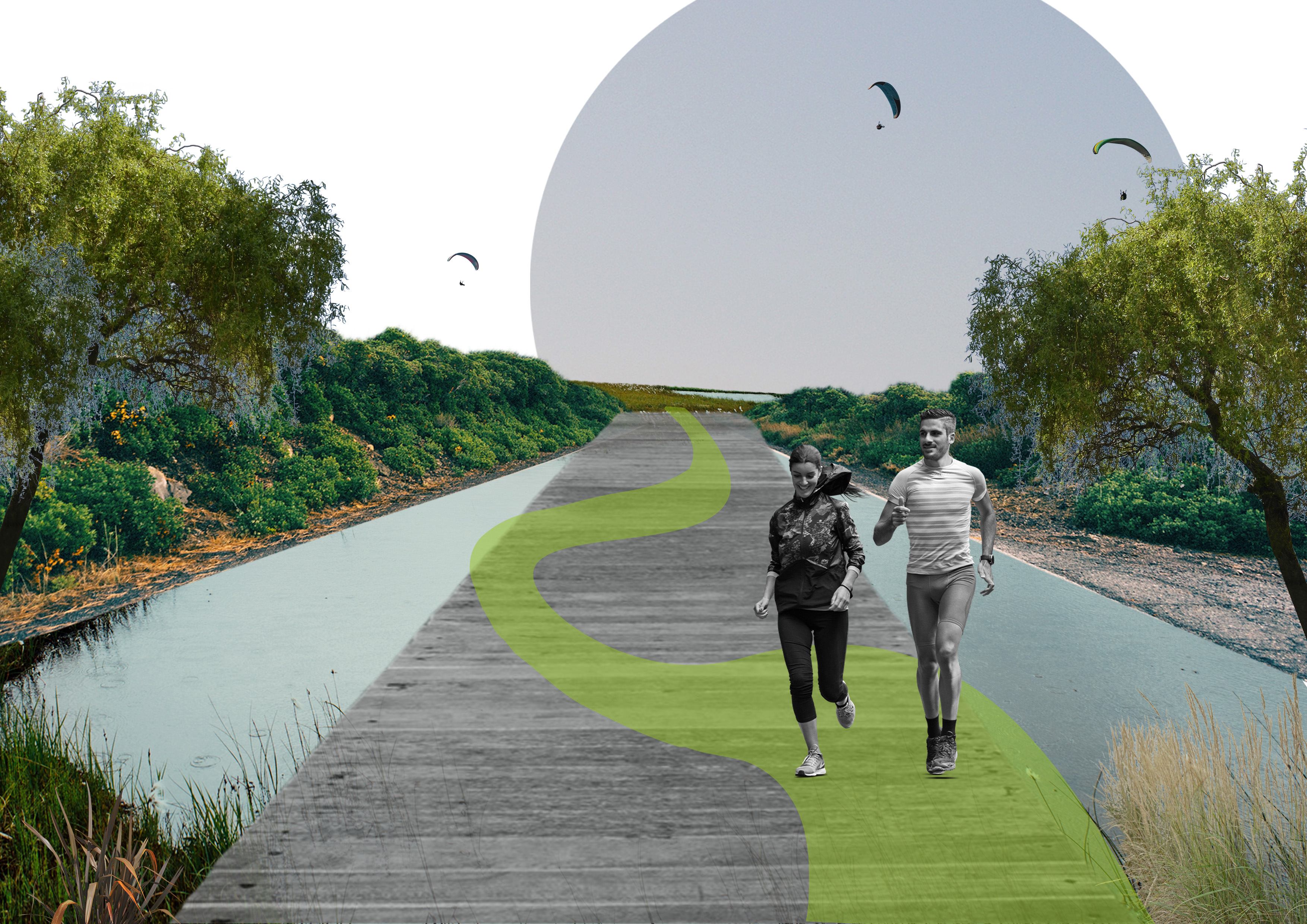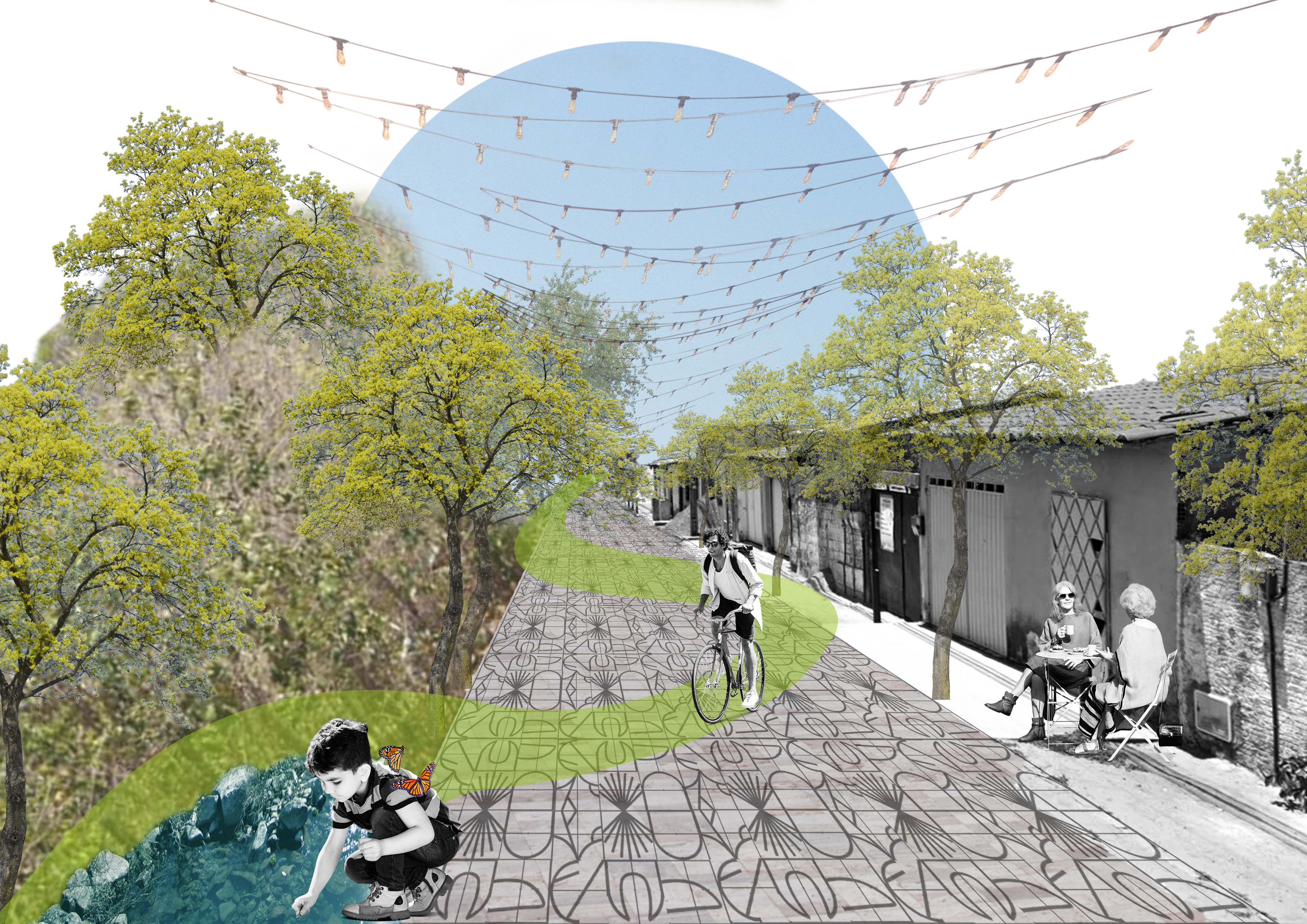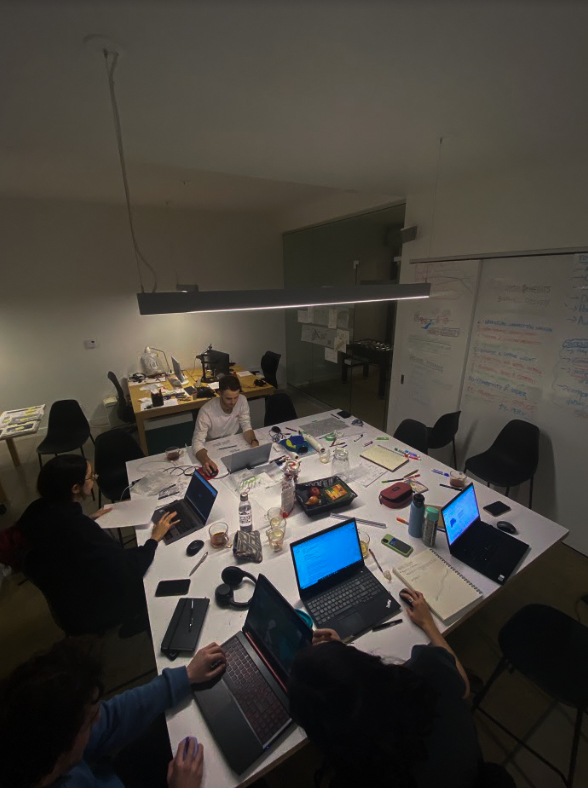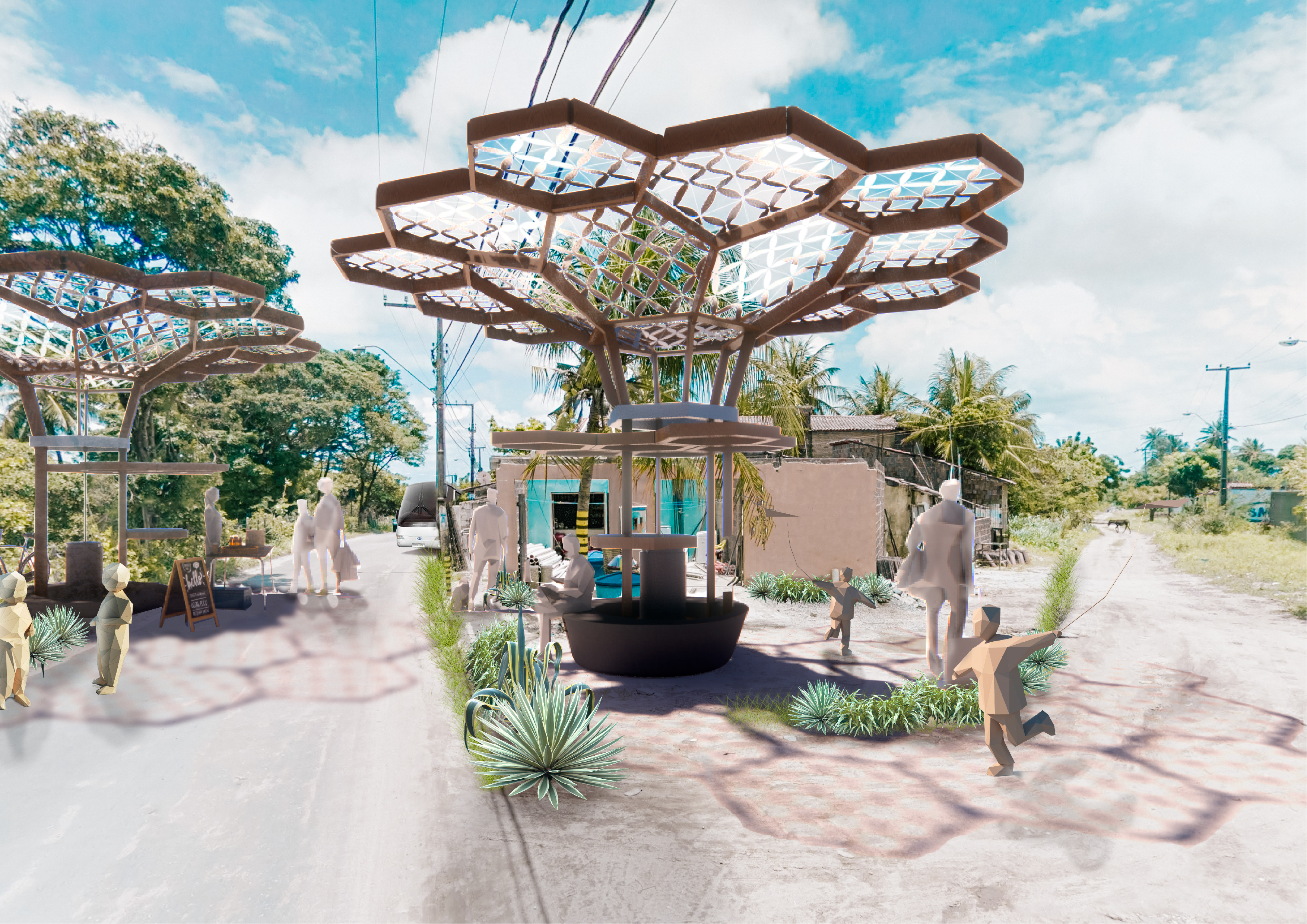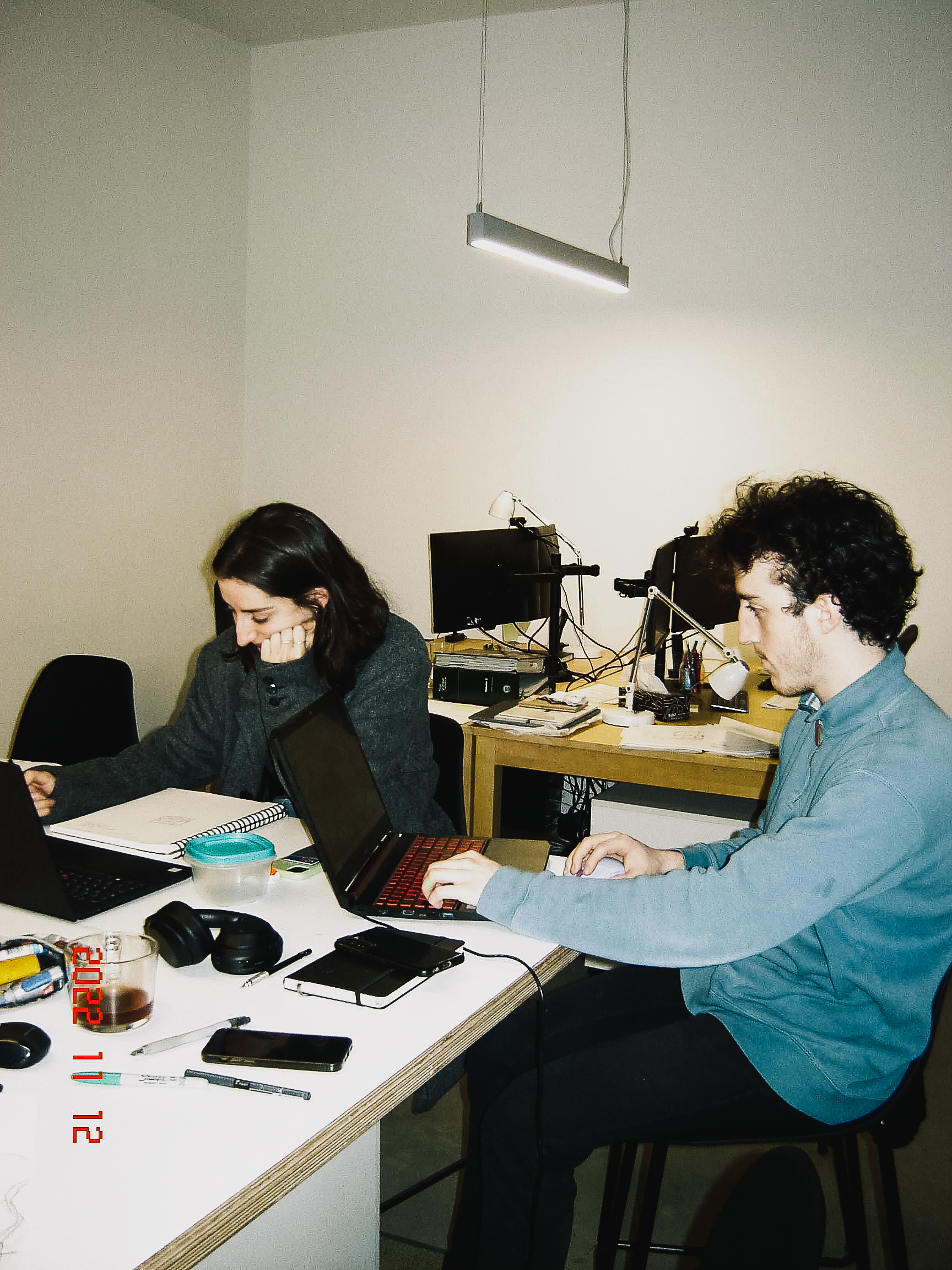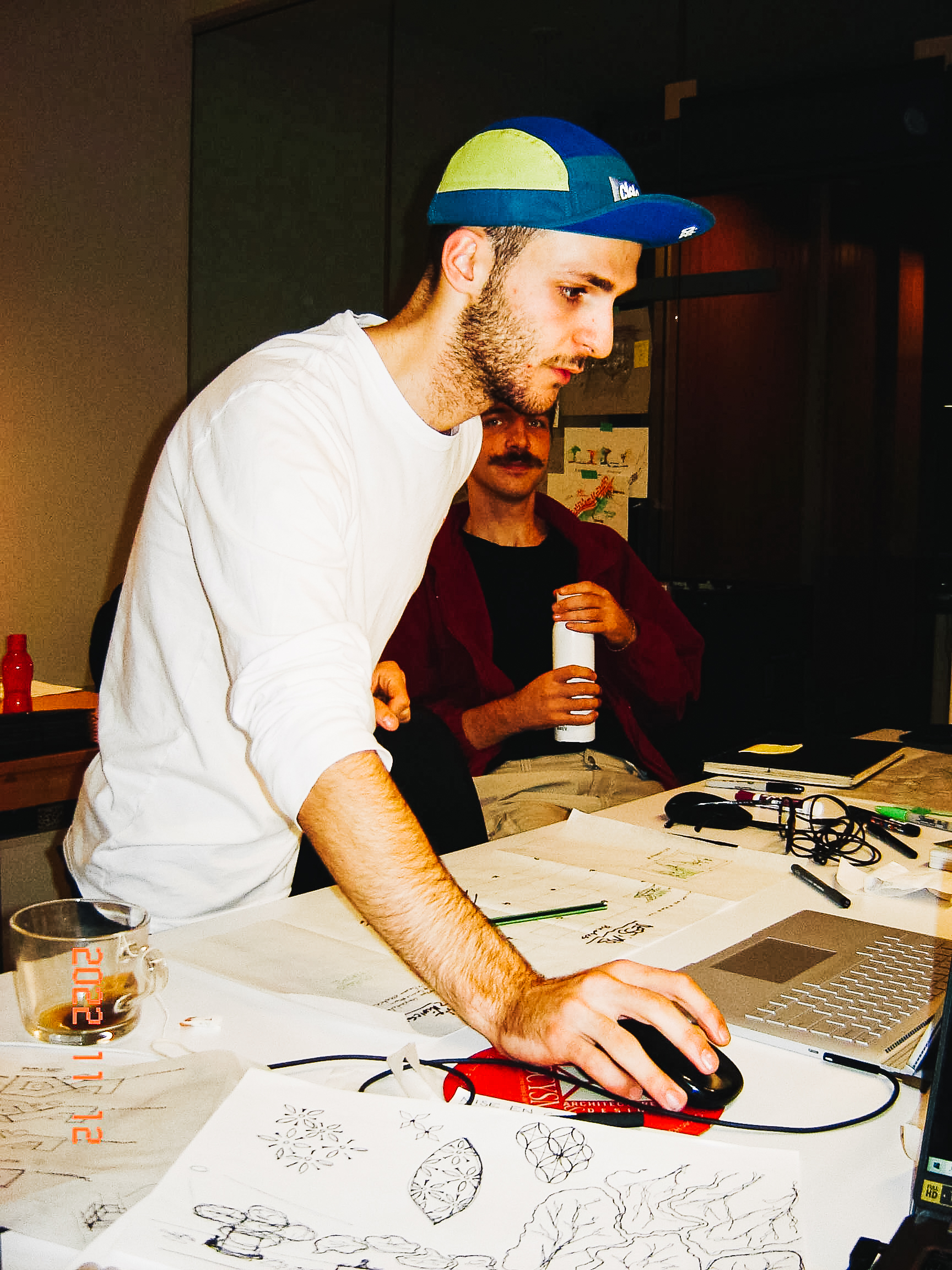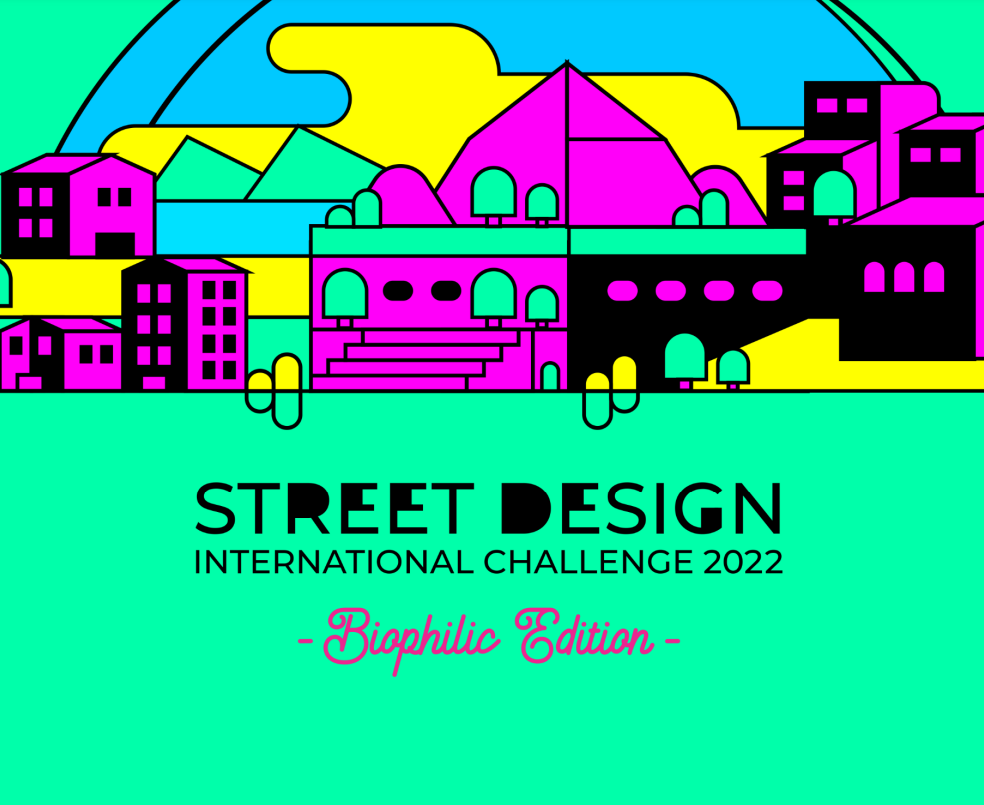Montréal team finishes third in International Street Design Challenge 2022!
Last November, two Montréal-based student teams answered a call for entries issued within the UNESCO Creative Cities Network for the 2022 International Street Design Challenge, a 48-hour university charrette. The event was held in conjunction with the COP27 summit and aimed to raise public awareness of the impacts of climate change in urban settings as well as the actions needed to transform cities into healthier, more viable, more enjoyable and more inclusive living environments.
The competition attracted 25 proposals from 19 institutions of higher learning in 11 UNESCO Cities of Design. Each student team had to be supported by one or two faculty members from their university. The teams tackled the challenge of revamping a peri-urban street using biophilic design principles in just 48 hours. They learned details of which site they would be working on at the start of the charrette, had access to documentation provided by the host city, and had the opportunity to discuss the specifics of the site with a local expert. At the end of the challenge, each team had to deliver a proposal in the form of a video.
Following the jury’s deliberations, we are delighted to announce that third place in the competition has been awarded to the team from Université du Québec à Montréal (UQAM) for its concept for the redesign of Sabiaguaba Street in Fortaleza, Brazil. The Bureau du design congratulates the team and takes this opportunity to commend everyone who responded to this challenge; we hope that the experience helps consolidate what you have learned during your academic career.
The UQAM team comprised Maëlann Bleau, Andrea Catalina Bohorquez, Gabrielle Cloutier, Émilie Gibert and Evelyne Pothier-Leboeuf, all undergraduate students in environmental design, supported by School of Design Professor Sinisha Brdar and Natachat Danis, a lecturer in environment with the Faculty of Science.
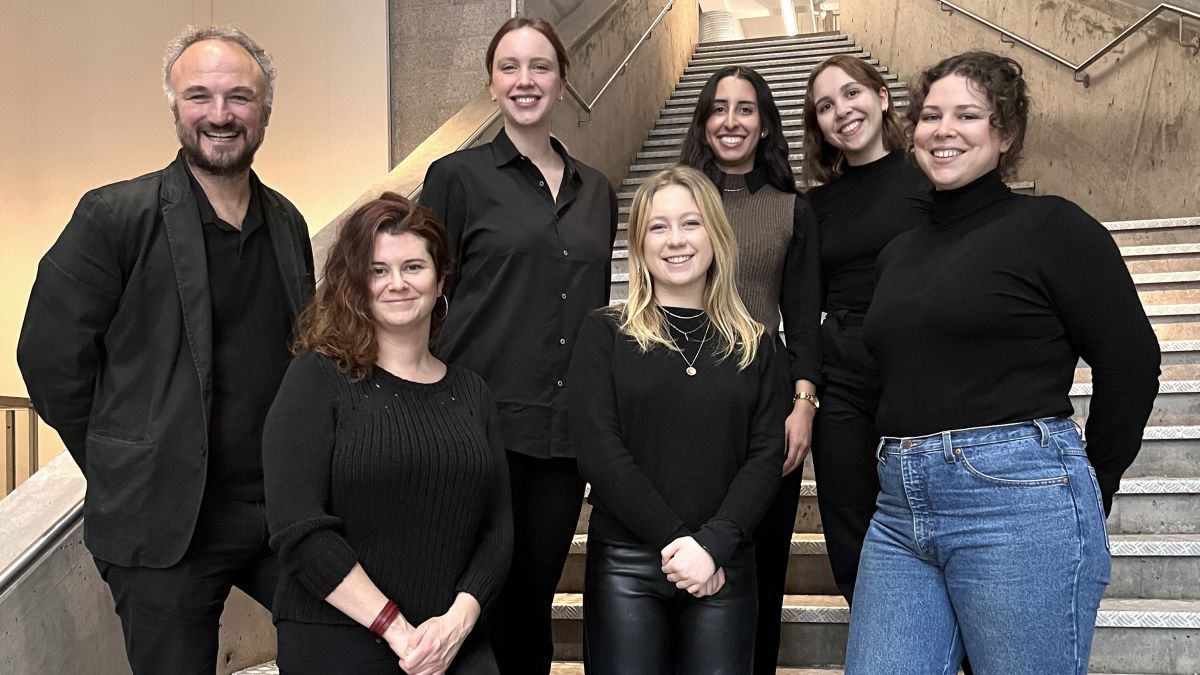
In a charrette, the time constraint really pushes you into action! It’s a great exercise to force yourself to prioritize which ideas you want to explore. The specific context of Fortaleza provided a chance for us to think about urban design in extreme conditions, with a very hot climate and a flood-prone area. Our idea was to celebrate water with retention ponds to ensure less catastrophic spring flooding. We also sought to take advantage of the existing space all while making the street friendlier for users. The intent was to restore a degree of balance in this neighbourhood, where social inequalities are apparent.
– Andrea Catalina Bohorquez, contestant with the UQAM team
The Université de Montréal team, meanwhile, was guided by Alice Covatta, Assistant Professor, UdeM School of Architecture, and comprised six undergraduate students in Architecture: Henri Bazinet, Mel Cirera, Oscar Lallier, Audrey Laporte, Sarah Naim and Charles-Alexandre Toussaint. Their proposal, Urban Grove, can be viewed here.
Since time was short, we drew on the existing strengths of each team member and acquired knowledge as we went. The interesting thing about a charrette is that the scope is short and the outcome is collective. I think that allowed us to take risks that none of us would have taken in a personal project. We gained new knowledge in a short time, and that pays dividends for the future.
– Oscar Lallier, contestant with the UdeM team
Note that second place in the competition went to a team from Pontifícia Universidade Católica de Minas Gerais in the city of Belo Horizonte, Brazil. Its proposal Edible Montréal was for the redesign of Avenue de l’Église. Four other international teams also worked on this Montréal site. We salute the work of Lysanne Audet, a Planning Consultant with the Division de l’urbanisme of the Direction de l’aménagement urbain, and her Sud-Ouest Borough colleagues, who submitted a street profile of Avenue de l’Église, which enabled Montréal to be included in the challenge.
For the Bureau, the 2022 International Street Design Challenge was a fine opportunity to see the full potential that this type of initiative provides for emerging designers. We hope this collaborative initiative will continue in 2023 and we invite students, faculty and our City of Montréal colleagues to stay tuned for news of the next edition. Please reach out if you are interested in taking part. Write to us at @email to talk about it!

